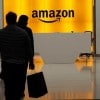Analysis | The Technology 202: At CES, it’s robots and rainbow slides. In Washington, tech is under fire. – The Washington Post

Visitors take a selfie as they test augmented reality products at the RealMax booth during the 2020 International Consumer Electronics Show. (ETIENNE LAURENT/EPA-EFE/REX)
Ctrl + N
LAS VEGAS — Welcome to the technology split-screen.
The optimism and ambition about the future of the tech industry on the showroom floor here at CES presented an alternate reality to the broad anxiety in Washington about its power and influence.
People flooded Las Vegas from around the world, pacing 2.9 million square feet of company displays while donning augmented reality glasses, bending new foldable phones and tablets, cruising in pod-shaped Segways and getting their first glimpse at vertical TVs.

Visitors walk through a tunnel made of LG’s OLED flexible screens next to the South Korean booth during the 2020 International Consumer Electronics Show. (ETIENNE LAURENT/EPA-EFE/REX)
They dined on Impossible Foods’s new faux ground pork as they snaked through booths hawking home surveillance drones, emotional support robots and high-tech sex toys.

RoboSea’s Robo-Shark, a multi-joint bionic robot fish for underwater exploration, is displayed during the 2020 CES in Las Vegas, Nevada, U.S. January 8, 2020. (REUTERS/Steve Marcus)
They held intellectual conversations about the promise of self-driving cars —and stood in long lines for a chance to race down Google’s massive rainbow slide and fall into a ball pit. Company parties raged into early morning hours at hotels along the Las Vegas Strip.
Contrast that with the mood on Capitol Hill, where lawmakers were grilling Facebook executive Monika Bickert about the company’s efforts to deal with manipulated videos ahead of the 2020 elections. The social network’s announcement yesterday that it was not backing down from its decision not to fact-check politicians ads and would allow them to microtarget ads renewed anxieties among Democrats. Amazon told concerned lawmakers that its connected doorbell company Ring was firing employees for improperly accessing users’ video data.
The split screen highlights the difference between what the tech industry wants to be — and how increasingly skeptical Washington lawmakers see it.
It also underscores the mounting pressure on CES, the 52-year-old tech conference, to adjust to a new reality where tech is no longer a political darling but a target.
CES in recent years has increasingly become a venue where policymakers and tech industry officials can mingle. The Consumer Technology Agency, the tech industry trade group that organizes the event, told me earlier this week that more than 150 policymakers attended, including several from the Trump administration. But the officials who got top billing on the main stage largely steered clear of the incidents defining the techlash in Washington and focused on the positive promises of innovation.
As my colleague Heather Kelly wrote yesterday about how these speakers found ways to cling to the utopia the industry dreams of: “No single event encapsulated the contrast between the world CES imagines and the one we live in like the keynote talk from Ivanka Trump on Tuesday.” During her address on the future of work with CTA president and chief executive Gary Shapiro, Trump said nothing about the acrimony that has defined relations between Silicon Valley and Washington under her father’s presidency. She never addressed her father’s impending impeachment trial, the tense military standoff with Iran, climate change or even more industry-specific concerns like privacy or the risks of social media.
And Transportation Secretary Elaine Chao’s keynote address on self-driving cars made little mention of the concerns in Washington about the industry’s swift and largely unchecked rollout of test vehicles on the road. She described self-driving cars as an innovation “that have the potential to save thousands of lives annually” and reduce traffic. She talked in broad strokes about safety and data security, but never mentioned some of the specific concerns among lawmakers about autonomous vehicles — such as the fatal crash of an Uber in Arizona last year.
Even so, there were some clear signs that the tech industry’s Washington woes did creep into CES. Privacy was increasingly a theme in some of the companies’ marketing, even as the show was littered with smart home gadgets, cameras and drones that have the potential to suck up greater swaths of data about people.
Apple — a company which has not been a presence at CES in decades — appeared alongside Facebook at a privacy-focused panel. My colleague Geoffrey A. Fowler attended and warned against believing Apple’s corporate hype about its commitment to privacy. But he noted: “It’s a big deal that techies are even talking about privacy; CES has long been the epicenter of cheerleading for connecting everything to the Internet.”
There were also panels that delved into some of the top regulatory threats in Washington. The conference hosted a session yesterday on the debate about breaking up large companies, which Politico reported was the first antitrust panel ever at CES. There was a session about the future of the tech industry’s prized legal shield, Section 230 of the Communications Decency Act, which is increasingly under attack in Washington. The law provides tech companies immunity for the content that people post on their platforms, and the tech industry is fiercely defending it against any changes.
The political tensions between China and the U.S. on trade were also palpable. Fortune reports that tensions from the trade war and concerns over the ability to obtain visas contributed to a drop-off in Chinese company attendance at the conference this year. About 1,000 of the 4,500 companies exhibiting at CES 2020 came from China, Fortune reports. Two years ago, one third of participating companies were from China.
While major players like Xiaomi and Vivo were absent from the CES directory, Huawei — the Chinese telecom at the center of a Trump administration crackdown last year — had a large presence. But at CES, the company tried to keep the focus on demos of its smartphones, smart watches and tablets.
“People love our products,” said Eduardo Estrada, a Huawei spokesman on the showroom floor. “I know there’s been tensions, but we’re here.”
BITS, NIBBLES AND BYTES

Reddit logo. (iStock)
BITS: Reddit will ban manipulated videos seeking to mislead users, the company announced yesterday. That would include a video manipulated to make House Speaker Nancy Pelosi (D-Calif.) appear drunk that went viral last summer as well as a deceptively edited video of former vice president Joe Biden circulating on Facebook.
The policy distinguishes the online platform from Facebook, which recently released a policy on manipulated media that would not cover the Pelosi or Biden videos. Politicians have pressed for tech companies to address computer-generated, highly manipulated videos, known as deepfakes, before the 2020 election.
Reddit says the new policy will help it moderate posts such as fake articles falsely attributed to real journalists, forged election communications purporting to come from real agencies or officials, or scammy domains posing as those of a particular news outlet or politician. Reddit already has policies in place prohibiting pornographic deepfakes — which make up the majority of manipulated video — and impersonation as it relates to foreign influence operations (such as Russian trolls posing as American users.)
Highly technical impersonation such as deepfakes are rare on Reddit, according to the company. The most recent report on Reddit content moderation puts impersonation as comprising only 2.3 percent of content policy violations of its approximately 141,000 violations (not including removals of spam).
Like Facebook, Reddit’s new policy protects satire and parody, and users can appeal content moderation decisions.
Media manipulation researcher Britt Paris called Reddit’s policy more “thoughtful” than Facebook’s, applauding it for recognizing that less-technical forms of impersonation can still have disastrous consequences.
“It requires no special computing power, hardware, or technical skillset to deceptively impersonate some entity or someone in these ways,” Paris, an assistant professor at Rutgers University, wrote in an email. “It is good that Reddit seems to recognize this.”

A woman heads to the voting booth to cast her ballot at Hillsboro Old Stone School November 07, 2017 in Purcellivlle, VA. (Photo by Katherine Frey/The Washington Post)
NIBBLES: The National Security Agency warns that Russian trolls are back and growing stealthier heading into the 2020 elections, Matthew Rosenberg, Nicole Perlroth and David E. Sanger report at The New York Times. Dozens of officials and experts say that many of the vulnerabilities exploited in 2016 remain, even as tech companies like Facebook make major investments in addressing security threats they didn’t even know existed during the last presidential elections.
Intelligence officials are describing the activity as a refresh in operations: The trolls at the Internet Research Agency — the firm responsible for most of the Russian disinformation spread in 2016 — have given up email accounts that Western intelligence agencies were tracking and shifted to encryption tools like Proton Mail. They’re also trying to get around the ban that Facebook implemented on foreigners purchasing political ads by paying American users to hand over personal pages and using offshore bank accounts to obscure the purchases, an official and security expert at a large tech company told the Times.
There are also broad cybersecurity concerns, including fears of hacking as well as ransomware attacks close to the election. Recent attacks on American cities in the last year exposed security holes that could be exploited by those looking to disrupt voting by locking up a voter rolls or simply killing power at critical polling centers.
“Chaos is the point,” Laura Rosenberger, director of the Alliance for Securing Democracy, which tracks Russian disinformation efforts, told Nicole. “You can imagine many different scenarios.”

People walk into the lobby for Amazon offices in New York. (AP Photo/Mark Lennihan, File)
BYTES: Amazon began labeling a popular shopping app as malware just weeks after it was acquired by PayPal, one of its biggest rivals in the online payments space, Louise Matsakis at Wired reports. Honey, the company behind the extension, says the warning contains inaccurate information and sparked consumer backlash.
The conflict highlights the enormous power Amazon wields as one of the world’s most popular online shopping destinations. (Amazon CEO Jeff Bezos owns The Washington Post).
“Our goal is to warn customers about browser extensions that collect personal shopping data without their knowledge or consent,” a representative for the company said in a statement. The company declined to answer follow-up questions from Louise about the basis for the security warning, which you can see in this tweet:
But Honey tells Wired it does not track user data in the way described by Amazon, a claim supported by its privacy policy, Louise reports. The browser extension says it routinely engages in third-party security audits.
Hostility from Amazon toward a competitor wouldn’t be unusual for the company, Louise reports. Amazon still doesn’t accept PayPal payments, and the company carefully guards its consumer data.
PUBLIC CLOUD

Children at play. (Allison Zaucha for The Washington Post)
House lawmakers introduced a new bill to update a decades-old law protecting children’s privacy online yesterday, Emily Birnbaum at the Hill reports. The legislation adds to growing momentum in Congress aimed at holding tech companies accountable for how they handle the data of minors.
The Preventing Real Online Threats Endangering Children Today Kids Act, introduced by Reps. Tim Walberg (R-Mich.) and Bobby Rush (D-Ill.), would raise the age of existing protections from 13 to 16 years old. Under the law, parents would have the right to delete any personal information including location and biometric data collected about their children from websites.
The bill is similar to an effort led by Sens. Josh Hawley (R-Mo.) and Ed Markey (D-Mass.) to update the Children’s Online Privacy Protection Act, though Rush told the Hill the efforts were separate. The Federal Trade Commission has also expressed interest in revisiting the law.
— Technology news from the public sector:
U.S. Funds Program With Free Android Phones For The Poor — But With Permanent Chinese Malware
Android phones for low-income households are preinstalled with tools that download apps without permission and throw up annoying ads. Is privacy only for the rich?
Forbes
Seattle takes aim at Amazon over political spending
The Seattle City Council is scheduled to vote Monday on new campaign finance restrictions that would prevent companies like Amazon from spending money on city elections.
The Hill
This Secretive Surveillance Company Is Selling Cops Cameras Hidden in Gravestones
Special Services Group also offers cameras hidden in child carseats and vacuum cleaners.
Vice
PRIVATE CLOUD
— Technology news from the private sector:
Internet Culture
Hoaxers are using the Australia wildfires to spread misinformation — sometimes for profit
One Twitter user lifted video of a woman hugging a kangaroo and mischaracterized it — then tried to profit off of the deception.
Brittany Shammas
Facebook has been pushing to get into the business of virtual reality and augmented reality hardware since its 2014 acquisition of Oculus.
CNBC
In 2019, CES banned sex tech. This year it’s all the rage
At one of the world’s biggest tech trade shows, where companies come to talk up oversized televisions and curious concept cars, two engineers walked attendees through a build-your-own vibrator workshop.
CNN
Microsoft Releases Chat Scanner to Detect Child Sex Predators
Microsoft Corp. will share a tool it’s been using on its Xbox gaming service to scan online text chats and detect adults seeking to groom and exploit children for sexual purposes.
Bloomberg
FAST FWD
— Scooter company Lime is laying off about 14% of its workforce — or roughly 100 employees — Kia Kokalitcheva at Axios reports. Lime will also cease operations in 12 markets in a bid to become profitable in 2020, the company told Kia. That includes Atlanta, a market that Lyft also pulled out of in November.
— More news about tech workforce and culture:
Facebook Is Forcing Its Moderators to Log Every Second of Their Days — Even in the Bathroom
“People have to clock in and clock out even when going to the toilet and explain the reason why they were delayed, which is embarrassing and humiliating.”
David Gilbert
Amazon’s Efforts to Silence Climate Whistleblowers Are Backfiring
The tech giant has moved to suppress employee activism on climate change, but its most vocal workers remain unbowed
OneZero
#TRENDING
— Tech news generating buzz around the Web:
Innovations
In Silicon Valley, some men say cosmetic procedures are essential to a career
Women have long felt the pressure of looking the part. Now men are feeling it, too.
Peter Holley
From surgery simulators to medical mishaps in space, video game tech is helping doctors at work
Contemporary surgery training is primitive. Video game technology is changing that.
Elise Favis
The appetite for live-streaming is bigger than ever
If you’re not watching streams you should probably start now
The Verge
@MENTIONS
- Verily, the health and life sciences unit of Google parent company Alphabet, has hired former Tesla executive Deepak Ahuja as chief financial officer, CNBC reports.
CHECK-INS
— Coming up:
- The House Oversight Committee will hold a hearing called “Facial Recognition Technology (Part III): Ensuring Commercial Transparency & Accuracy” on Wednesday.
- The House Antitrust Subcommittee will host a field hearing on the role of competitors in the digital economy at 10 a.m. on Jan. 17 at the University of Colorado Law School in Boulder.
- Silicon Flatirons will host its “Technology Optimism and Pessimism” conference Feb. 9 and 10 at the University of Colorado Law School in Boulder, Colorado. Speakers include FCC Michael O’Rielly and FTC Commissioner Rohit Chopra.
- Mobile World Congress takes place Feb. 24 to 27 in Barcelona


















